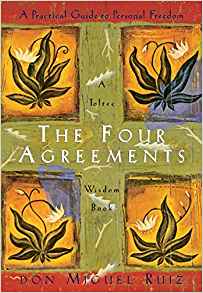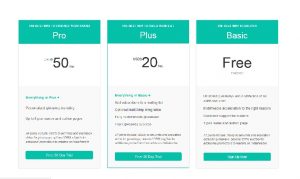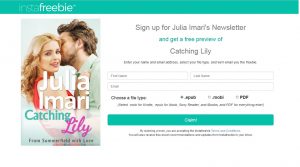How to grow thick skin: Taking negative reviews about your novel in stride
You've worked hard at writing your novel. The editor has just refined the story, you've made an eye-catching cover and the description or blurb is captivating. Your heart beats a million times before you hit the publish button.
Now your book is published.
People buy it and you gleefully wait for their awesome reviews to come rolling in. When the first 5-star review arrives, you’re so excited you post it on your social media. Then the next review is 2-stars.
Ouch.
 Well, I didn’t actually get 5-stars, but instead a lowly 2-star review was posted on my author's page on Goodreads. Although, I was prepared for it.
Well, I didn’t actually get 5-stars, but instead a lowly 2-star review was posted on my author's page on Goodreads. Although, I was prepared for it.
My preparation of thickening my skin was started long before I published.
It started when I sent my review copy to the beta readers. Whoa! I wanted to hide in the darkness and to never return. I know they'd criticize the plot, characters, grammar and everything else—except me. But I still couldn’t separate myself from the book I wrote. I know that I’m in this business for the long run, so I toughened my resolve and took all the criticism like a pro.
And now that the book is published, I’m facing real readers. This time, I’m well prepared. You must have a ton of positive attitude and never let all the inevitable negative reviews bring you down. You can wallow over them for an hour if you want, then you must tell yourself it's time to pull back and to move on.
You can rant on social media to make you feel better, but I prefer not. You'll never know who'll read your post. It’s fine if you blame yourself and not the reviewers, but I don't think it'll help to increase sales.
Long before I decided to publish my romance novels, I planned in advance how to face all the challenges that would come along with this exciting endeavor. First, I created a pen name. Being a thin skin writer, I knew I'd have a hard time accepting negative reviews. A pen name helped me to distance myself whenever a low-starred review rolled in.
A pen name is also important—if you want to write in several genres. Or, even if you want to test the waters before committing to the craft as a full time writer. Writing is a tough job and it's not for the faint of heart. This gig also requires a significant amount of time working alone—to write and complete the story—not to mention the strict self discipline of sitting in front of the computer and finishing the story.
However, having a pen name protects me only externally, but does it help to cope emotionally? Nah. I could only distance myself from the book for so long, then I'd begin to second guess myself. I've read a lot on a wide range of topics and have come across a little book titled The Four Agreements by Miguel Ruiz.
It's a gem. I use these four agreements or mantras. It says:
1. Be impeccable with your word;
2. Don’t take anything personally;
3. Don’t make any assumptions;
4. Always do your best.
Be impeccable with your word
Say what you mean and mean what you say. Be precise and leave no wiggle room for others to misinterpret or misconstrue or manipulate what you wrote.
As an indie author, you’re judged by all the words you've typed in your social media and what you’ve said in your blog. You’ll be monitored by your followers and fans. Other writers watch you, checking what you're up to. So, you must act professionally all the time. Your choice of words and how you use them carries you to the top or pulls you down to crash and burn.
Also, you’re judged by words you choose as you market your book. You’ll be judged in the way you interact with your readers and followers, as well as by many unnamed and unknowable persons in the online and traditional publishing industry.
To be impeccable with your word also extends beyond being just an author. If you are also marketing, you must not take this advice for granted as you’ll only invite trouble. In the end, your writing career won’t survive that long.
I strive to be habitually impeccable with my word in every way I communicate. I’ll do the same in my replies to posts, in emails and on the social media platforms. I don’t want to leave room for others to twist and manipulate whatever I say or post. Being precise and accurate, you’re eliminating any potential misunderstanding and confusion.
Don’t take anything personally
When negative reviews roll in, I was taken aback by them—at first. Then I read what exactly what was said and I just smiled. I realized that the words the reviewers had chosen were entirely his or hers, and had nothing to do with me. I felt grateful for the review, though.
As an author we’re all well known to be a sensitive bunch. Otherwise, how could we create unique characters that are both flawed and multi-dimensional? Being sensitive is the most important trait for creativity. We’re not qualified to be writers if we don’t have this trait. Well, when you misplace this trait, your self confidence suffers. I don’t take anything personally, not when I know what’s going on in my world as an author.
Don’t make any assumptions
This third agreement is what makes me smile whenever I receive negative criticism. You need to read The Four Agreements by Miguel Ruiz to understand what it means. The person who said nothing but spout negative words could have had a bad day at the time he or she read the book or wrote the review. So, when your story or characters couldn’t sooth their troubled mind on that fateful day, they acted in a way that only flamed their need to reduce the pain. Hence with the negative words they've pelted on you or your book.
Making assumptions about others won’t help your self esteem and confidence either. Understanding what the reasons are behind the negative words will help you to detach yourself from this criticism, and you’ll never get suckered personally into it.
Always do your best
Just because you’re an indie author and self-published, you can't be slack with your story, plot and all the important elements that make up a novel. You must give everything you have to craft a story that captivates your readers. Then, let go of it and allow the public to be the judge.
This fourth agreement sums it all. No matter what others say about your books, you've done your best. What I mean by doing your best is, you've put all your heart into creating the book: you've hired the best editor you can afford, your cover is captivating and your description makes folks want to read more. Rest assured, you can sleep well at night because you did your best. And yet, after everything you’ve done, your book is still flawed to some reviewer(s).
There is nothing you can do about it.
What you can do is you did your best and you know it.
So, print out the Four Agreements, or better yet purchase the book, and tape it on the board where you can see it every day. Every time you feel down, read and soak your mind with it. You’ll feel better afterwards.
The Four Agreements has helped me to thicken my skin.
Photo Credit: Star vector created by Makyzz - Freepik.com



